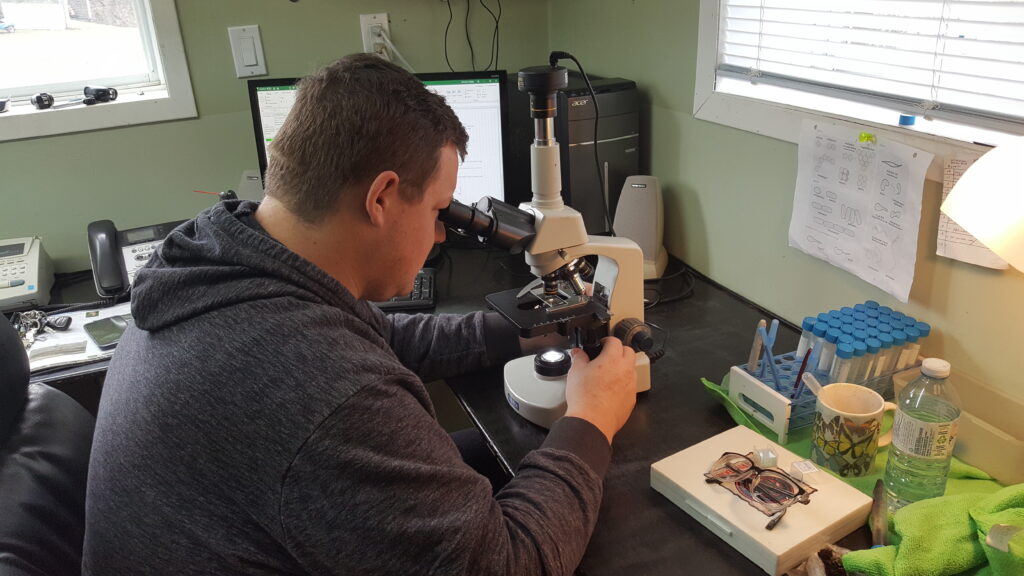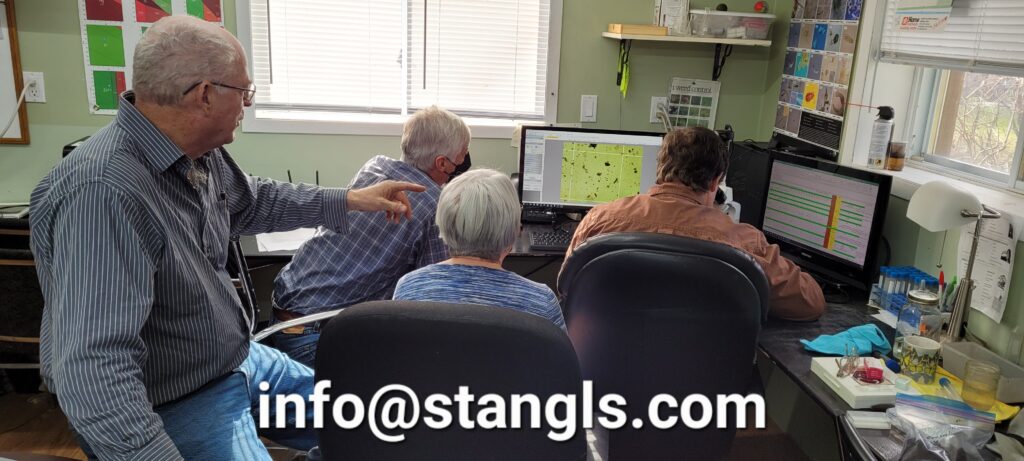At Stangl’s, we believe that the key to a healthy and beautiful lawn or garden lies in the health of the soil. That’s why we offer a unique service called the Soil Health Calculation. With this service, we’ll take a sample of your soil and analyze it under a microscope to see how many different types of living things are in it, such as bacteria, fungi, and tiny worms.

Our approach is to follow soil life, and we’ve been using the microscope to do so since 2015. By following our compost, extracts, and properties, we can determine the health of your soil and take action to improve it. One of the things we look at is the bacteria-to-fungus biomass ratio. If your soil has too many bacteria and not enough fungi, it can make your plants sick and your lawn look bad. We’ll start by pulling a core sample from the worst location, typically where fertilizer and spray programs have been applied, as these locations tend to have the worst soil health. We’ve found that in these locations, the bacteria-to-fungus biomass ratio can be as low as 1B:0.05F, which is like a life support, ventilator scenario with no air in the soil.
Our regenerative process works year-round with nature, 24/7, and we use this momentum of nature to build up your soil health. As soil life expresses itself, we see changes in chemistry defined by biology, organic matter, and gas exchange. During this process, we encourage specific weeds to grow to help throughout the process. The first soil health test is our benchmark for new and returning customers, and we can measure how well biology did over the winter.
But the Soil Health Calculation doesn’t stop there. We take a final core sample from the worst location before your last application to measure the bacteria-to-fungus biomass ratio, as well as the nematodes, protozoa, arthropods, and more. By doing so, we can see how this process is going and make any necessary adjustments to improve your soil health.
As part of our Soil Health Calculation, we focus on the ratio of bacteria to fungi in the soil. We aim for a ratio of 1B:1F as this promotes optimal soil health and plant growth. When the ratio is out of balance, such as having too many bacteria and not enough fungi, it can negatively impact the health of your lawn or plants. That’s why we use special methods to check the soil, including microscope analysis, TND (total nutrient digestion), Haney, PLFA, and SAP tests to measure different aspects of soil health. By understanding the unique biology of your soil, we can develop a customized plan to improve its health and help your plants thrive.
In addition to the bacteria-to-fungus biomass ratio, we also offer other tests, such as Total Nutrient Digestion (TND), Haney, Phospholipid Fatty Acid (PLFA), and Plant SAP Analysis. We do not use conventional chemistry tests since they are often just a sales pitch to sell you more products. Instead, we focus on the living organisms in your soil and how they can improve the health of your lawn or garden.
We’ve been using the Soil Health Calculation on every property, including our compost, Nature’s Brew, and retailers selling soil, as well as on golf courses, sports fields, and farms. We believe that by following soil life and improving the health of the soil, we can create a sustainable and healthy ecosystem for your plants to thrive in.
Don’t settle for a more-on approach based on observation or chemistry tests. Let Stangl’s help you unlock the secrets of your soil and create a healthy, beautiful lawn or garden that you can enjoy for years to come.
Interested in learning more about soil health and how to improve it? At Stangl’s, we offer workshops and training sessions to help you deepen your understanding of the soil ecosystem and learn how to build healthy soil that supports plant growth and vitality. Whether you’re a homeowner, gardener, or farmer, our workshops can provide valuable insights and practical tips that will help you achieve your soil health goals. Contact us today to learn more about our upcoming workshops and training sessions, and start your journey towards healthier soil today!
